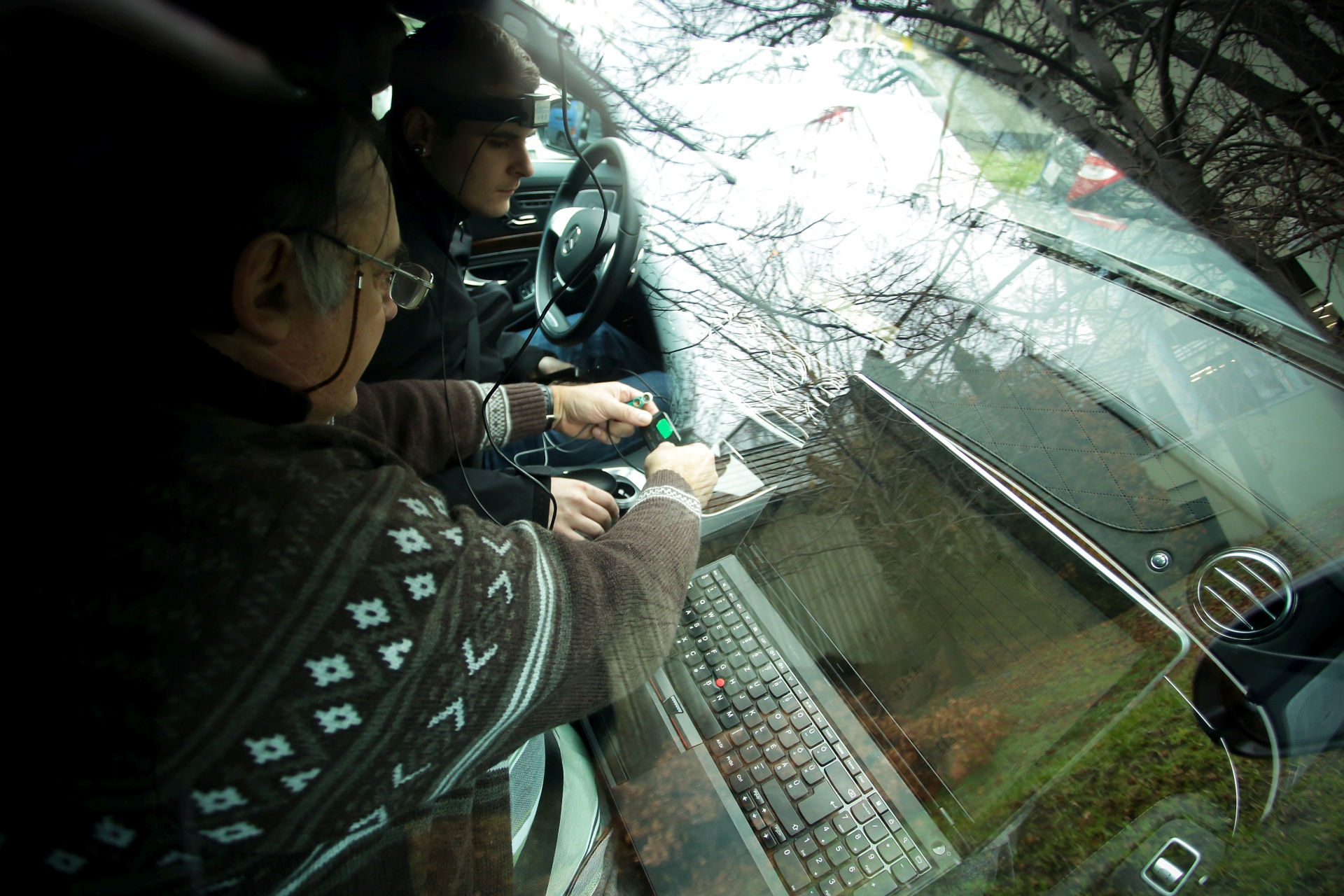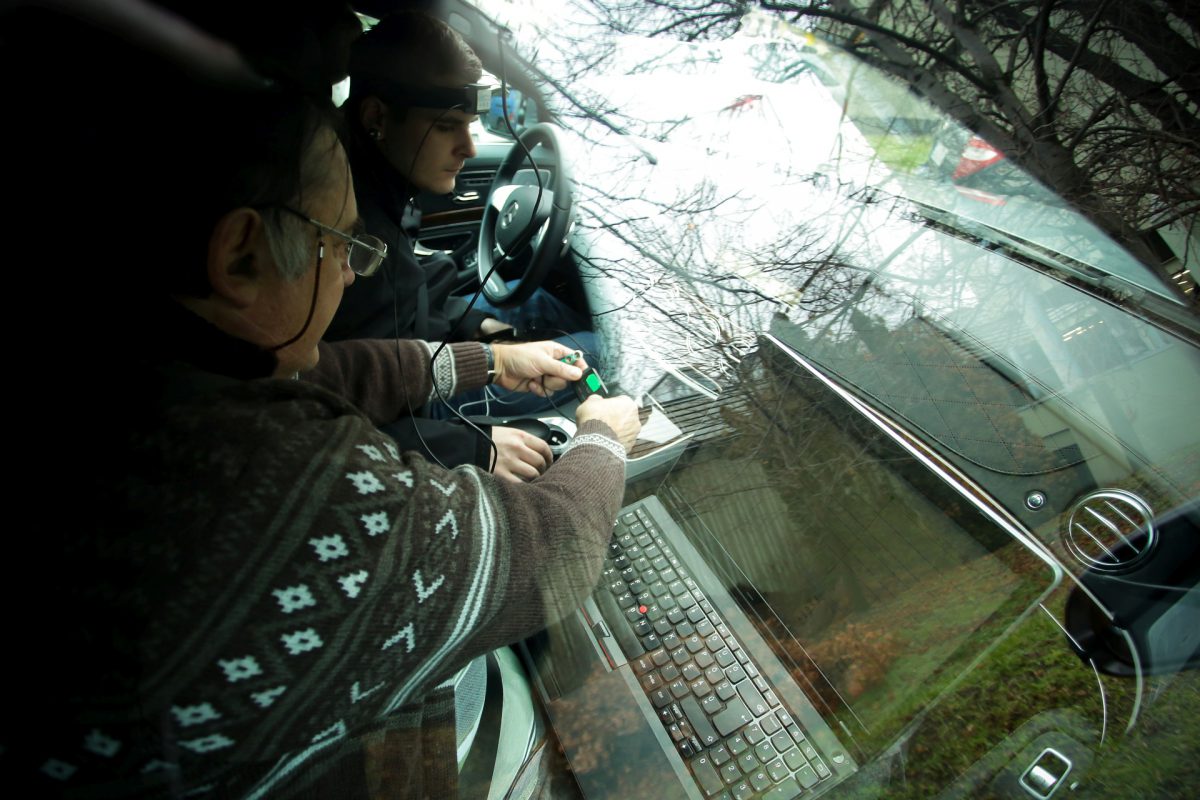Interesting experiment with an expert of human physiology
As traffic on the roads are getting more and more complex worldwide, the physical and mental demands towards the drivers are ever-increasing. In order to always keep up to the challenges posed by unpredictable and often dangerous traffic situations, Mercedes-Benz Intelligent Drive precisely coordinates the safety and assistance systems available in the models of the Brand with a Star. This way, it helps the driver to react in the best possible way in any given traffic situations.
Mercedes-Benz Hungária LLC, the wholesale distributor of the models produced by the Brand with a Star initiated an experiment and analysed the performance of a driver using an older car without driving assistance systems and a new test car featuring Mercedes-Benz Intelligent Drive. Based on the real-time physiological data, the aim was to find out how the driver is performing and how efficient he is when it comes to managing complex urban traffic situations.
Cooperation with the most well-known local expert of endurance physiology
The methodology of the examination was developed by Dr. Máté Petrekanits, Head of Laboratory at Semmelweis University’s Faculty of Sports Sciences and Scientific Director of the Fit4Race programme that aims to optimize racing drivers’ physiological performances. Dr. Máté Petrekanits (1949) is one of the most well-known expert of endurance physiology in Hungary. He is former 146 times player in the national volleyball team, member of the Hungarian Physiological Society, the Hungarian Olympic Medicine Committee and board member of the Company of Hungarian Coaches. He has conducted over 100.000 examinations on sports personalities and members of armed forces during his 30 years long scientific curriculum.
During the trial in January 2014, Dr. Máté Petrekanits recorded the physiological data of the driver in a so-called calm examination. After that, he also collected information in real-time while completing two 10 kilometres-long stints on a pre-defined urban route with a Mercedes-Benz A 180 CDI (W169) without assistance systems and a Mercedes-Benz S 350 BlueTEC (W222) equipped with Intelligent Drive. Following these reference laps, he carried out the calm examinations in the car again.
By collecting on-board data during the calm examinations and driving, Dr. Máté Petrekanits analysed EEG, EKG and various other biological and physical parameters before he compared them with the traffic situations as seen on the video footage. By conducting a review of the data, the reactions of the human body got noticeable during the stints in the car without assistance systems and with the other supplied with Mercedes-Benz Intelligent Drive.
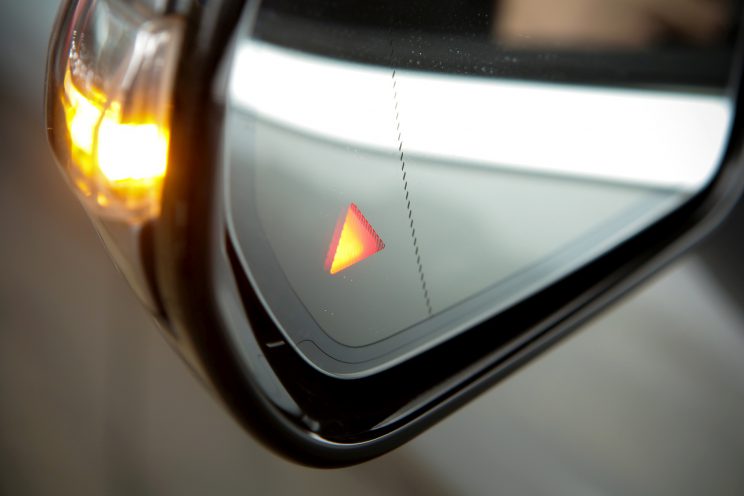
“The devices that we used were developed to assess sports personalities. These systems are capable of providing data about the analysed person’s current physiological condition and based on this, we are able to determine, how close to his or her body is to the optimal physiological state. The reference data is supplied from our knowledge that we have gained by assessing Olympic and world champion sports personalities. Our test stints with the different cars resulted visible differences in terms of physiological data, like the electric operation of the heart and brain, or the physical parameters, for example the accelerations affecting the body” said Dr. Máté Petrekanits.
Following a review of the data, Dr. Máté Petrekanits Máté concluded that it is less exhausting to drive a car equipped with Mercedes-Benz Intelligent Drive.
According to Dr. Máté Petrekanits: “Following our experiences with the S 350 BlueTEC, the analysis of the heart functioning, the metabolism and the brain wave spectrum-analysis showed that less biological performance is needed from the driver in the test car that was equipped with Mercedes-Benz Intelligent Drive. This means that the supplied driving assistance systems supporting the driver efficiently in commuting, this way the driver can arrive more relaxed and more concentrated.”
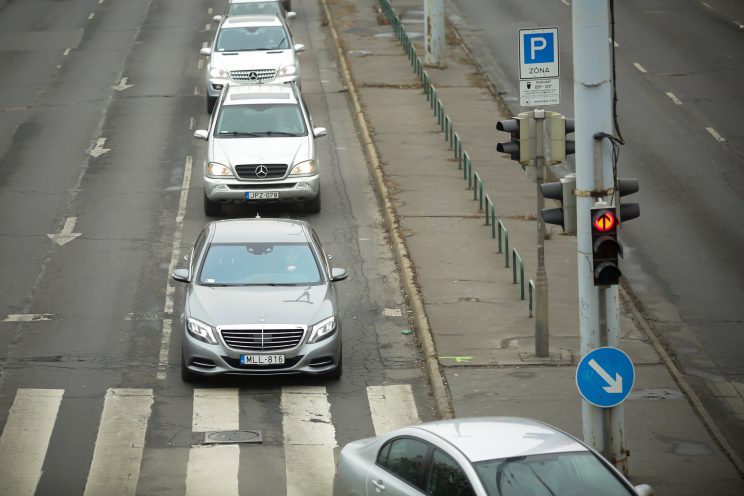
“We have examined motorbike riders, karting and race car drivers multiple times on closed circuits but this was our first opportunity to measure how the driver’s body is operating from a biological perspective. On the top of that, we could do this using a car without driving assistance systems and Mercedes-Benz’s technologically highly advanced vehicle as well.
Mercedes-Benz Intelligent Drive in daily use
During the examinations, the test cars were commuting in urban traffic, in accordance with the current Highway Code, this way, the comfort and driving assistance features of Mercedes-Benz Intelligent Drive could be tested. The demonstration of the system’s accident prevention features is only possible on a closed circuit with trained professional drivers or by watching the animations on Mercedes-Benz Hungária’s YouTube channel.
Prominent roles were played by the DISTRONIC PLUS adaptive cruise control with steering assist, the Active Blind Spot Assist and the COLLISION PREVENTION ASSIST that helps the driver to avoid rear-end collisions and the BAS PLUS brake assist that increases the brake pressure to the optimal level. The full list of assistance systems featured in Mercedes-Benz Intelligent Drive is available at www.mercedes-benz.hu/intelligentdrive.
Assistance systems featured in every Mercedes-Benz passenger cars
All current Mercedes-Benz passenger cars and some of the light commercial vehicles are featuring driving assistance systems. The complete package called Mercedes-Benz Intelligent Drive was made available in 2013 in the new E- and S-Class, and it will be received by the 2014 C-Class as well, which is the model with the highest volume model for the Brand with a Star.
One of the most important specific of Mercedes-Benz Intelligent Drive is the networked connection among all the assistance systems. The Brand with a Star is constantly developing the capabilities of the systems and includes them in more and more models irrespective of the vehicle categories. ATTENTION ASSIST, the system that monitors the driver’s level of fatigue is standard in every new Mercedes-Benz models and most of the other systems, like the COLLISION PREVENTION ASSIST, the Active Blind Spot Assist or the Intelligent Light Systems are available as optional equipment for most of the models.
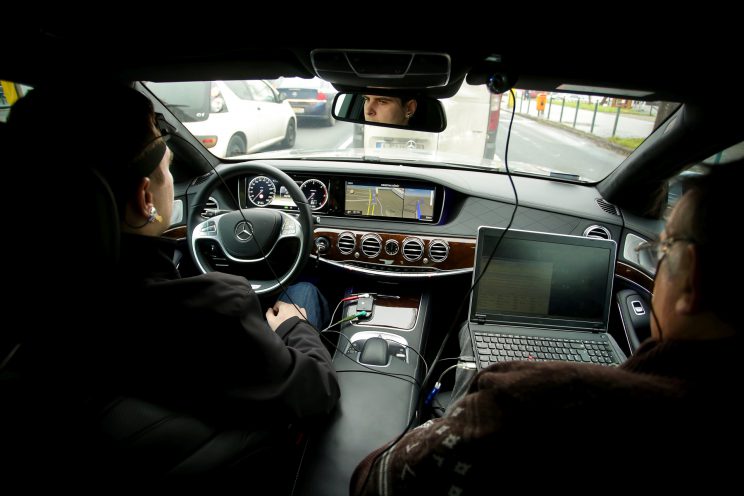
The aim is to provide full protection not only for the passengers of a Mercedes-Benz vehicle but also to keep other road users safe as well. As a part of this, Mercedes-Benz Hungaria to provide driver training as standard for the driver of every new Mercedes-Benz passenger cars handed over from the 1st of February 2014 and has operated a road safety campaign for pupils under the MobileKids name since 2012.
The Fit4Race programme
Fit4Race is a one of its kind initiation in Hungary that has specialized for motorsport competitor’s entire physical preparation and support during the race weekends. It has supported FIA WTCC race driver Norbert Michelisz and Auto GP racer Tamás Pál Kiss among other sports personalities. The unique nature of the program is that it exists to improve the special skills that are needed for a motorsport competitor, like reactions, balance perception, eye-hands coordination, strength and fitness. A part of the preparation is the unique physiological examination that Dr. Máté Petrekanits carries out in the Physiological Laboratory of Semmelweis University’s Faculty of Physical Education. The founder of Fit4Race is Zsolt Matics, a former successful kart driver, physiotherapist and personal trainer, a graduate from Semmelweis University’s Faculty of Physical Education.
